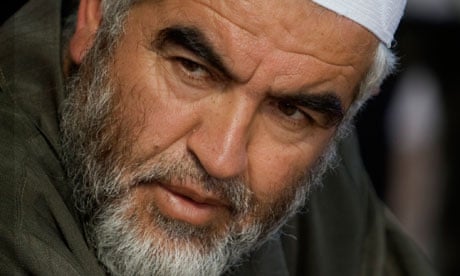Sheikh Raed Salah, the leader of the Islamic Movement in Israel and veteran mayor of one of the country's largest Arab towns, stands at one of the most sensitive junctures of the Middle East conflict.
As a citizen of Israel, he heads an organisation which is legal but disliked, doubtless monitored by the government, and loathed by the right as embodying the growing militancy of parts of the Arab minority – 20% of the whole population.
The Islamic Movement campaigns for the rights of those citizens who refer to themselves as the "Arabs of 1948" – those left behind while 700,000 others became refugees when Israel was founded. It fights discrimination and campaigns for the right of Palestinian refugees to return, as well as against house demolitions and expulsions in Jerusalem.
Salah has been jailed for raising money for Hamas, which is considered a terrorist organisation by Israel. In 2010 he served a five-month prison term for assaulting a policeman. But accusations of antisemitism and homophobia have largely emanated from the UK.
Attempts have been made to outlaw the Islamic Movement for incitement but they always failed in Israel's high court. Its political importance has risen in recent years as prospects for a negotiated two-state solution to the conflict have receded and Palestinians have adopted more explicitly anti-Zionist positions that call for a "one-state" solution under which – under current demographic trends – Jews would no longer constitute a majority.
Ideologically, the movement is close to the Muslim Brotherhood. It preaches social conservatism, observance of sharia law, charity and resisting the influence of western culture. Salah's visit to the UK was organised by the Palestine Solidarity Campaign and Middle East Monitor, which promotes Islamist causes and focuses on the Palestinians. Both say he rejects accusations of antisemitism.
The real question about the episode is this: if Salah is tolerated in Israel, why did the UK government object to his presence?
